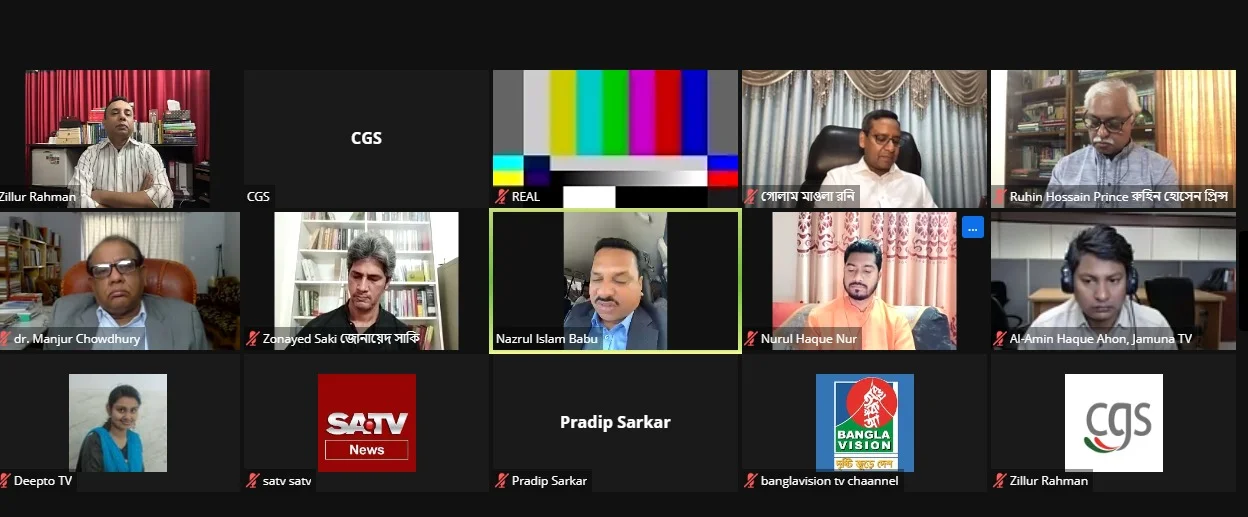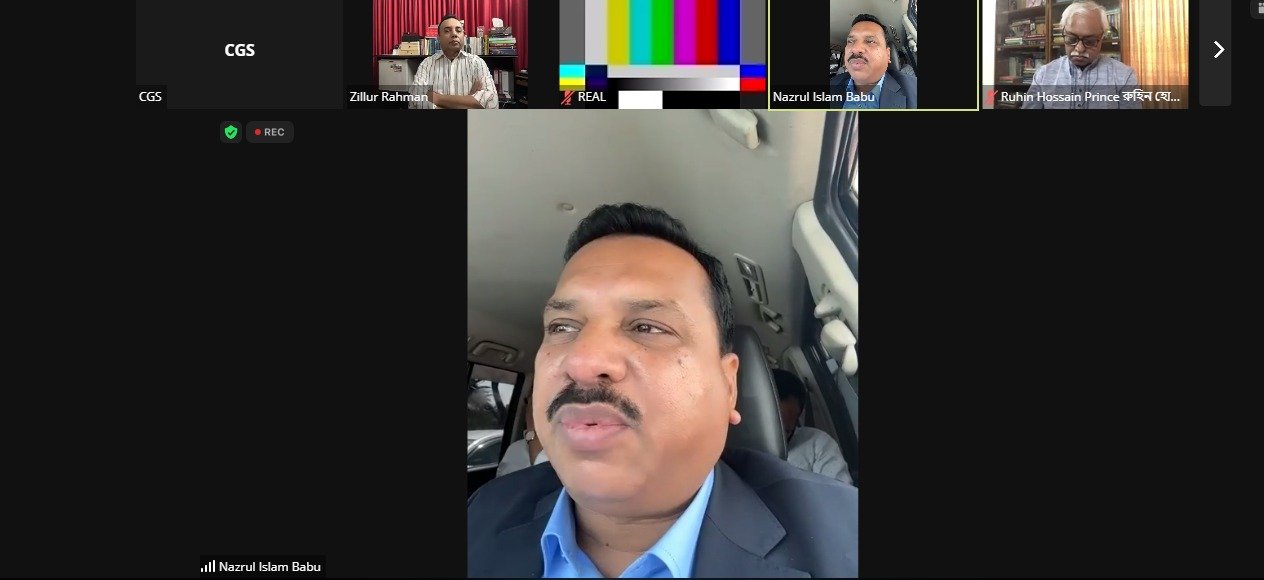Legislation should be made in public interest, not for suppressing voices
Share on:

The Centre for Governance Studies organized a webinar today titled " Digital to Cyber Security Act: thoughts of the politicians " to discuss the experience of the victims and the dimensions of the newly adopted CSA 2023.
The speakers of the webinar were Nazrul Islam Babu, Member of parliament of Awami league, Golam Maula Rony, Former Member of Parliament and BNP leader, Ruhin Hossain Prince, General Secretary of the Communist Party of Bangladesh (CPB), Junaid Saki, Chief Coordinator of Ganasanghati Andolan and Nurul Haque Nur, President of Gono Odhikar Parishad and former VP of DUCSU.
The chair of the webinar was Dr. Manjur A. Chowdhury, the Chairman of CGS. The program was moderated by Zillur Rahman, the Executive Director of CGS.
At the beginning of the webinar, Zillur Rahman started by pointing out the dark side of DSA-2018, under which filed cases are still running despite the law having been reformed as CSA in 2023. He stated that this law can be misinterpreted by anyone to punish individuals like politicians and journalists. “Even the current Justice of Bangladesh Supreme Court, Sheikh Hassan Arif yesterday (26th February) in a press conference termed CSA as dangerous if not implemented wisely”, said by him.

Nazrul Islam Babu has pointed out that Bangladesh has evolved into a ‘Digital Bangladesh’ by its unprecedented development in recent years. Thus, the creation of ‘The Digital Security Act – 2018’ is part of that progress only. He added, “Why should people be afraid of it who are innocent and not involved in any crime?”. According to him the sole purpose of this act is to safeguard the country’s citizens and reduce criminal propensity.
“Cyber Security Act is the most draconian law, Bangladesh has formulated currently”, stated Golam Maula Rony. He is of the view that Bangladesh didn’t need to have this law when concerned cases could have been punishable under the existing panel court already. If the government fails to grow a ‘Sense of responsibility and respect’ among its citizens towards the country’s laws, then no law can ever be successful in dispelling crime in the first place. He also condemned the process of drafting DSA by practicing lawyers who had shallow knowledge of lawmaking.
Ruhin Hossain Prince regretted that the demand to abolish ‘The Digital Security Act-2018’ was mercilessly rejected by the Bangladesh government, just a few changes brought to a few clauses under the law. He said, “DSA was introduced to sustain the regime of fear among the people by excluding the people.” He proposed that we should not stop raising our voices against the wrong no matter what which is our right.
Junaid Saki emphasized the ‘Culture of totalitarian regime’ prevailing in Bangladesh where no one is allowed to criticize the government's actions. It seems to be a crime here and DSA is the perfect example of suppressing common people’s voice legally. He gave the example of the ‘Quota reform movement’ here that is still running in court.
Nurul Haque Nur reflected on the dysfunctional state system prevailing in Bangladesh where people get arrested for ‘Cases in absentia’. “There is no proper definition or clarification on ‘Defamation’ enunciated in law.” Out of 10 non-bailable clauses, only 4 have been changed but are not properly followed yet. History knows how the government uses these laws to reaffirm their power, for example, he mentioned the creation of RAB during BNP tenure which got countrywide opposition including AL but after coming into power, they have not abolished RAB force.
Dr. Manjur A. Chowdhury concluded the webinar by expressing concern over the severity of ‘DSA Law’ that allowed indiscriminate arrest of innocent people by misusing this Act. “Not all laws drafted in our country’s constitution are not in favor of public interest and ‘Indemnity Ordinance 1975 is one of them”, he told. The issue of Rohingyas allegedly fleeing Bangladesh using fake NID and passports is a burning concern too.

